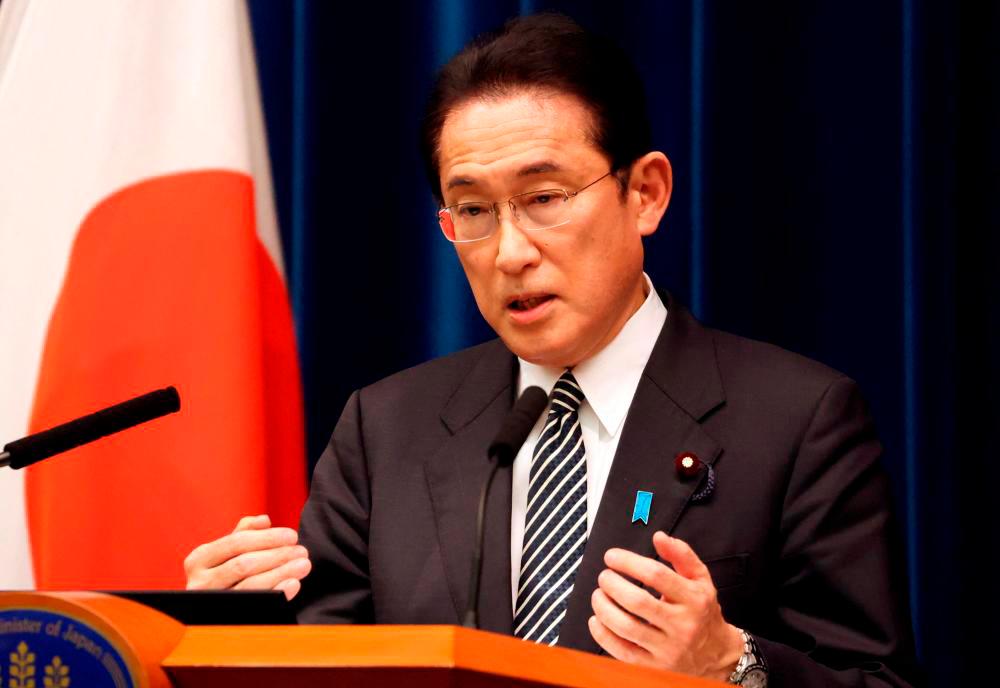
The Invasion of Ukraine: Make Russia Pay for Its Violence
Russia has launched a military attack on Ukraine. This is an invasion that clearly tramples on the sovereignty and territory of another country. It is an outrageous act in violation of international law.
It overturns the principles of respect for sovereignty, territorial integrity, and peaceful settlement of disputes enshrined in the United Nations Charter and destroys the international order that has existed since World War II. The international community must impose firm sanctions on Russia and make it pay a heavy price.
Mr. Putin's Selfishness
Russian President Vladimir Putin has ordered the Russian armed forces to launch a military operation under the guise of protecting the pro-Russian population in eastern Ukraine. He also stressed his intention to pursue the demilitarization of Ukraine.
The Russian Defense Ministry said it plans to carry out attacks to neutralize Ukrainian military facilities and airfields.
Missiles were reportedly used to attack government military facilities in Kiev, the capital of Ukraine, and major cities in the east, as well as Odessa in the south facing the Black Sea. Cyber attacks on government institutions have also been confirmed.
In light of the fact that the Russian military has been gathering and reinforcing its forces around Ukraine since the end of last year, it is likely that Putin had already made up his mind to invade.
Russia has been seeking assurances from the United States that it will not allow Ukraine to join the North Atlantic Treaty Organization, the U.S.-European alliance. However, from the beginning, Russia had no intention of concluding negotiations and probably just wanted to create an excuse to justify the invasion.
In 2014, Russia annexed Ukraine's Crimean Peninsula using military pressure. This was triggered by the fact that Ukraine, a former Soviet Union constituent state, had turned pro-Western.
Putin has been emphasizing the historical and cultural unity of Russia and Ukraine. However, Ukraine has been moving further and further away from Russia in reaction to the annexation of Crimea, and a pro-Western oriented government was formed in 2007.
There is no doubt that Putin's real intention is to put a stop to these developments and bring Ukraine under Russia's sway by force.
The true purpose of the military operation will also be to weaken the Ukrainian military while expanding the scope of Russian military activities and force the current government to step down. The protection of the eastern population is just a pretext; there is no justification for the military action.
If the invasion continues, a clash with the Ukrainian military is inevitable. There will be many casualties on both sides, including the residents of Ukraine. Once again, we are outraged by Putin's inhumane decision.
The U.N. Charter stipulates the territorial integrity and political independence of nations and prohibits the use of force or military threats over territorial disputes. Russia has violated the U.N. Charter even though it is a permanent member of the U.N. Security Council, which has a greater responsibility for world peace and security.
The Existence of the Security Council is Questioned
Since the inauguration of the United Nations, the permanent members of the Security Council (the United States, Britain, France, China, and Russia) have been given veto power, which allows them to bury a draft resolution if even one country opposes it. The Security Council has become dysfunctional, with Russia attempting to avoid a resolution of condemnation on this basis.
Putin's unilateral condemnation of NATO's expansion after the collapse of the Soviet Union and his attempt to reorganize the global security order in a way that is convenient for Russia is a denial of the achievements of the postwar U.N. system.
In the first place, the choice or change of alliance is a matter for each country to exercise its sovereignty and decide of its own free will. NATO's enlargement was achieved as a result of new members from Eastern Europe and the former Soviet Union which sympathized with democracy and the rule of law and wanted to strengthen their own security.
Russia's outrage is nothing less than a challenge to the postwar order. Japan, which has held up "U.N.-centeredness" as one of the basic axes of its diplomacy, should take the lead in advocating this at the UN General Assembly and elsewhere.
Effective Sanctions
U.S. President Joe Biden said, "The world will hold Russia accountable," and stressed, "the United States and its Allies and partners will respond in a united and decisive way.”
[https://www.whitehouse.gov/briefing-room/statements-releases/2022/02/23/statement-by-president-biden-on-russias-unprovoked-and-unjustified-attack-on-ukraine/]
At the time of Crimea's annexation, Japan, the United States, and Europe were unable to impose effective sanctions against Russia. Based on the lessons learned, it is important that the Group of Seven countries work together this time to come up with effective sanctions.
The U.S. is considering tightening financial sanctions to bar Russian banks and other institutions from dollar settlements and restricting the export of advanced technology to Russia. Germany has decided to suspend the operation of a new pipeline with Russia. Japan must also take a firm stance.
The support of Japan, the U.S., and Europe will be essential to ensure that Ukraine does not succumb to Russia's threats. Without the removal of Russian troops, negotiations with Russia cannot be expected. Pressure for their removal should be drastically intensified.

